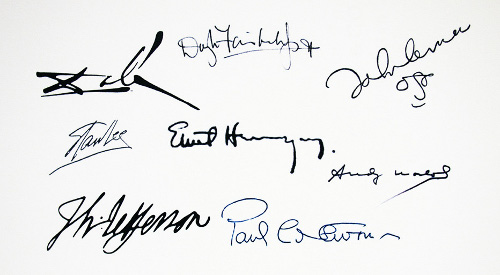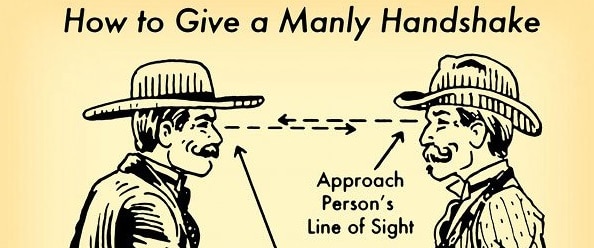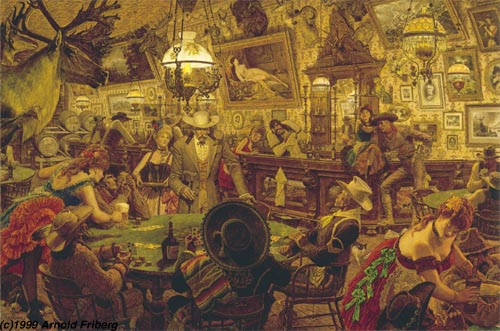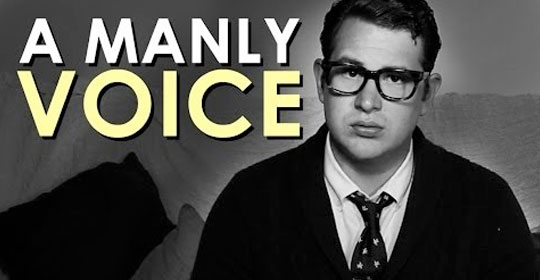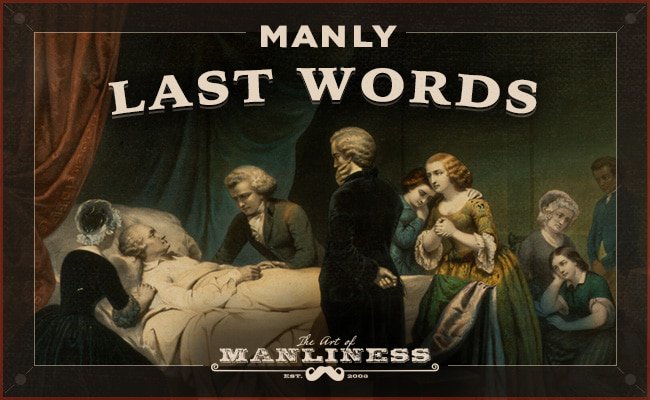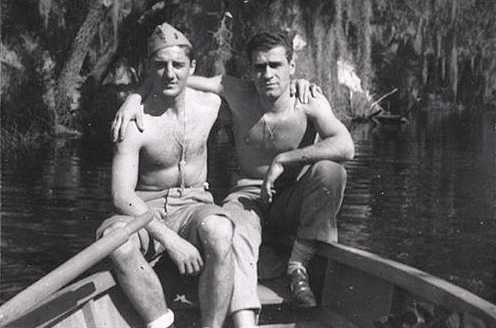
In Dante’s Inferno, Dante takes an allegorical journey through the nine levels of Hell. With Virgil as his guide, he ventures through nine concentric circles, each level inhabited by successively worse sinners. Dante works his way through limbo, lust, gluttony, avarice, wrath and sloth, heresy, violence, and fraud, before finally making it the center of the earth and the lowest circle of Hell. Here reside the worst sinners in history, those guilty of treason and betrayal. These traitors are doomed to spend eternity encased in ice, with the very worst of the bunch-Brutus, Cassius, and Judas-being perpetually chewed on by Satan.
With so many varieties of sinners, why did Dante mark traitors as the worst of the worst? For that matter, why do those who remember little about the Revolutionary War still know exactly who Benedict Arnold was? And why is being called a “fairweather fan” such a derisive insult? In short, why is betraying one’s loyalty so unforgivable an act?
While the fabric that has held society together has worn thinner in our modern age, it is still loyalty that lends the cloth its strength. It is loyalty that keeps the world functioning. We could not conduct business transactions or personal relationship without it. Loyalty is the idea that we are who we say we are and we will do what we say we will do. It is the hope that the integrity with which we initially encountered someone will endure indefinitely.
It’s also what keeps us unified. We live out our lives as part of agreed upon norms that allow us to operate from day to day. We need to know who we can count on. We all understand that ideally, friends will have your back, lovers will remain true, and businesses will not cheat you out of your money. When someone is disloyal, they break from these expectations and weaken the trust that holds us together.
Yet modern society is understandably weary of the virtue of loyalty. Every virtue has its true manifestation and its false counterpart. Frugality can become stinginess; resolution can become stubbornness; humility can become passiveness. And loyalty can become blind obedience. Critics of loyalty point to Germany under Hitler or China under Mao and ask, “Weren’t the evil deeds committed by ordinary people done out of a sense of loyalty?”
But the loyalty demanded by such regimes, by conquerors and oppressors, is not true loyalty. Loyalty can never be demanded, only chosen, as we shall see. And while loyalty can be used for both ill and good, this does not negate its great and honorable power when used for the latter.
What is Loyalty?
Like, courage, integrity, and personal responsibility, loyalty is one of the essential manly virtues. But like other lofty attributes, it is often easier to describe with examples than words. We know it in the soldier who will not leave a wounded comrade behind and dodges withering fire to bring the man to safety. We see it embodied in the prominent man who has women throw themselves at him when away from home, but who never strays from his wife, and in the religious martyr who chooses death over the disavowal of faith. And it is the bond that befuddles girlfriends who cannot understand why their beau is still friends with a childhood chum with whom he now seemingly shares little in common.
Josiah Royce, author of the 1920 book, The Philosophy of Loyalty, said loyalty was “the willing and practical and thoroughgoing devotion of a person to a cause.” Let’s unpack this definition:
Willing. Loyalty must born from your own choice and free will. It cannot be forced upon you by another person or organization. Loyalty must be chosen.
Practical and thoroughgoing devotion. Loyalty is not some pie in the sky abstraction. It must be coupled with action. Feeling and emotion can be part of loyalty, but action must always constitute the core.
To a cause. We often imagine loyalty as a bond between ourselves and individuals or organizations-with a friend, with a wife, with a church. Thus, when that individual entity changes and stops interesting us, we feel justified in breaking off our loyalty to it.
True loyalty must take as its cause something bigger than the individual; it must be rooted in principles, not people. Be not loyal to your buddy Eddie, but loyal to the idea of brotherhood and friendship. Be not loyal to your wife, but loyal to the idea of love and fidelity. Be not loyal to your sister but loyal to the sacred nature of familial bonds. Be not loyal to a church but loyal to the gospel.
Such unchanging principles must serve as the foundation of your loyalty. Thus, when people and organizations shift and change, your loyalty, anchored to immovable values, will remain steadfast.
To What Should We Be Loyal?
“Whenever, I say, such a cause so arouses your interest that it appears to you worthy to be served with all your might, with all your soul, with all your strength, then this cause awakens in you the spirit of loyalty. If you act out this spirit, you become, in fact, loyal.” -Josiah Royce
While we often think of loyalty as a somber duty, the causes which arouse your loyalty must be ones that fascinate and possess you, ones that reverberate in your being and invigorate your spirit.
The causes to which you choose to be loyal need not be dictated to you by your position or by tradition and can be entirely of your own creation. Choose causes which mirror your will and align with your core values and ideals, causes that so engross and engage both your heart and mind that you feel willing to make whatever sacrifices will be necessary to remain loyal and true.
The Decline of Loyalty
In time where individuality and personal freedom are the values du jour, loyalty is not celebrated with much frequency or gusto. Our intensely consumerist society has made us a nation of shoppers, not just for actual commercial goods, but in all aspects of our lives. With the myriad of choices available-from shampoos to professions-we are taught that happiness is a result of keeping one’s options open to the greatest possible degree. We are always on the hunt for a better deal, for an upgrade. Thus modern loyalty is a pale version of its ancient form. Sure we’re loyal……until something better comes along. We’re loyal…until we are given an excuse to bail. Of course this is not true loyalty at all. A loyal man commits to something with the idea that he is casting his lot with that cause in perpetuity.
Loyalty has also been weakened by our age of cynicism. As we have mentioned, loyalty requires a cause that invigorates and enlivens both heart and mind. Thus, idealizing your cause to a certain extent is necessary for loyalty. When we decide to be loyal, we are loyal to the very best in something, to the potential of something. We are fully aware of the warts of the cause, but these are not the things that animate our loyalty.
But our cynical age wishes to dwell only on the warts, to the eclipsing of anything good and virtuous about the cause. Cynicism crushes loyalty before it even has a chance to sprout up. When you speak of marriage, divorcees are waiting to intone about how outdated the institution is and how pointless the endeavor When you speak of country, naysayers immediately rattle off the latest news of government scandals. You cannot talk about a great man without someone jumping in to list their faults. There seems to be no room these days for someone who sees things as he hopes them to be, without being called naive and moronic. A cause needs some profundity and dignity for loyalty to thrive, and such space is currently hard to come by. But loyalty deserves a place even in our “sophisticated” modern age, as it offers a myriad of benefits to both the individual man and to society as a whole.
The Benefits of Loyalty
“Loyalty for the loyal man is not only a good, but for him chief amongst all the moral goods of his life, because it furnishes to him a personal solution of the hardest of human practical problems, the problem: “For what do I live? Why am I here? For what am I good? Why am I needed?” -Josiah Royce
We admire loyal men because they are filled with confidence, aim, direction, and purpose. We know what they are about and what we can expect from them. We know where they stand.
But loyalty may seem to be an archaic approach to life, one that will be detrimental to your personal happiness and fulfillment. Isn’t it good to always be willing to move on to something better and not be tied down to any one thing?
On the surface this makes sense, but it has been my experience that true happiness comes from committing to a cause bigger than yourself. And committing to that cause for the long haul. While society says that such absolute commitment is stifling, it’s really the endless shopping around mentality that’s leaving us unsatisfied. Here’s why:
Loyalty breeds satisfaction and happiness. Studies have shown that being able back out of our decisions makes us less happy than making “irreversible” decisions. For example, in one study students were told that they could pick one fine art print to take home with them. One group was told that the decision was final. The other group was told that they could return and exchange the print later if they so desired. While almost everyone in the second group said they were happy to have the option to return their print, almost none did. However, the second group ended up far less satisfied with their choice than the group that was not allowed to make exchanges. Why? Because with the option to reverse their decision always in the back of their minds, they could not move forward and put in the important psychological work to accept and enjoy their decision.
Thus, while it may seem risky to commit our loyalty to something for the long haul, it can be quite psychologically rewarding. In trading quantity for quality, you will come to know the rich satisfactions available only to those who are willing to go in-depth with something, sticking with it through thick and thin.
Loyalty lessens the amount of uncertainty in your life. In a previous article, we talked about the way in which having too many choices can paralyze us into unhappiness and inaction. One of the ways to mitigate this effect is to purposely limit our choices. There are some choices in life we can make once and never have to make again. Once you know where you stand in life, you don’t have to reinvent the wheel every time you are faced with certain choices.
Loyalty breeds loyalty. Of course living a life of loyalty does not garner merely personal benefits. It can positively transform society as a whole. Loyalty is contagious. As we lives of loyalty we encourage other men to do likewise. As Royce argues, we should act “as to further the general confidence of man in man.”
Loyal men can change the world. When good men bail out of organizations that they feel have gotten off-track, it simply becomes a self-fulfilling prophecy. There are no shortage of problems with everything from family to politics, but if loyal men don’t stick around and work from within to be a force of positive change, these institutions will never improve. Loyal men transform causes from the inside out.
Individualism, Free Will, and Loyalty
Perhaps the greatest impediment to our embrace of loyalty is the worry that we will lose some of our free will in the pursuit of it. After all, once you are dedicated to a cause, you are committed to acting in a certain way. But loyalty and individuality need not be at odds. Rather than submerge one’s individuality, loyalty can elevate and exalt the self.
The greatest and most difficult of philosophical tasks is it to discover and understand our own will. We first look inside of ourselves, but it is hard to find answers from gazing within. So we then look to conform with the rest of society. But doing so only highlights our differences with others and our desire to rebel from certain social norms. We then return to looking within ourselves for answers, and the cycle continues.
Loyalty can unify this conflict between individuality and social conformity, between our inner and outer worlds. Loyalty gives to man an external cause, an external purpose and course of action. But the decision to serve that cause is created from inner reasons, which glorify and inspire the self. In manifesting our inner values in an external way, we intensely feel the self, which is now imbued with power, value, and dignity. Royce argued:
“Thus loyalty. . . solves the paradox of our ordinary existence, by showing us outside of ourselves the cause which is to be served, and inside of ourselves the will which delights to do this service, and which is not thwarted but enriched and expressed in such service.”
When Are We Justified in Being Disloyal?
Perhaps the most difficult question to grapple with concerning loyalty is answering the question of when a man is justified in breaking his loyalty. Is a loyalty that has loopholes even loyalty at all?
Many men misunderstand loyalty as dependent on a tit for tat relationship. They see their relationships as a scale; as long as both sides remain balanced, they remain loyal. But as soon as the scale tips unfavorably to where they are sacrificing more than they are getting in return, they feel justifed in breaking their loyalty. But true loyalty is not a function of reciprocity.
You should strive to stay loyal until all the work you can do for your cause is finished, which may not come until the end of your life. Of course in between now and then your cause may change , and you be tempted to be bail and say, “I’m not going to let this cause tell me what to do!” But remember, you chose the cause. You proposed, you got baptized, you joined the army. In so choosing, you also chose to accept whatever crap would later come down the line. You knew the risks in pledging your loyalty, and you willing accepted those risks. What good is a loyalty that swells in the midst of pomp and ceremony only to shrink in the trenches?
On the other hand, a cause should never become your conscience. And what does a man do when his cause violates that conscience, when it violates his core values? The first time it happens are you justified in being disloyal? After 7 times 70 times? Never? Is there any honor in taking great abuse from your wayward cause or is to remain in an offensive situation a disavowal of your manliness?
Here is where I’d like readers to pick up the discussion. What role does loyalty have to play in a man’s life and in modern society? And when is a man justified in being disloyal?
Source: The Philosophy of Loyalty by Josiah Royce, 1920



